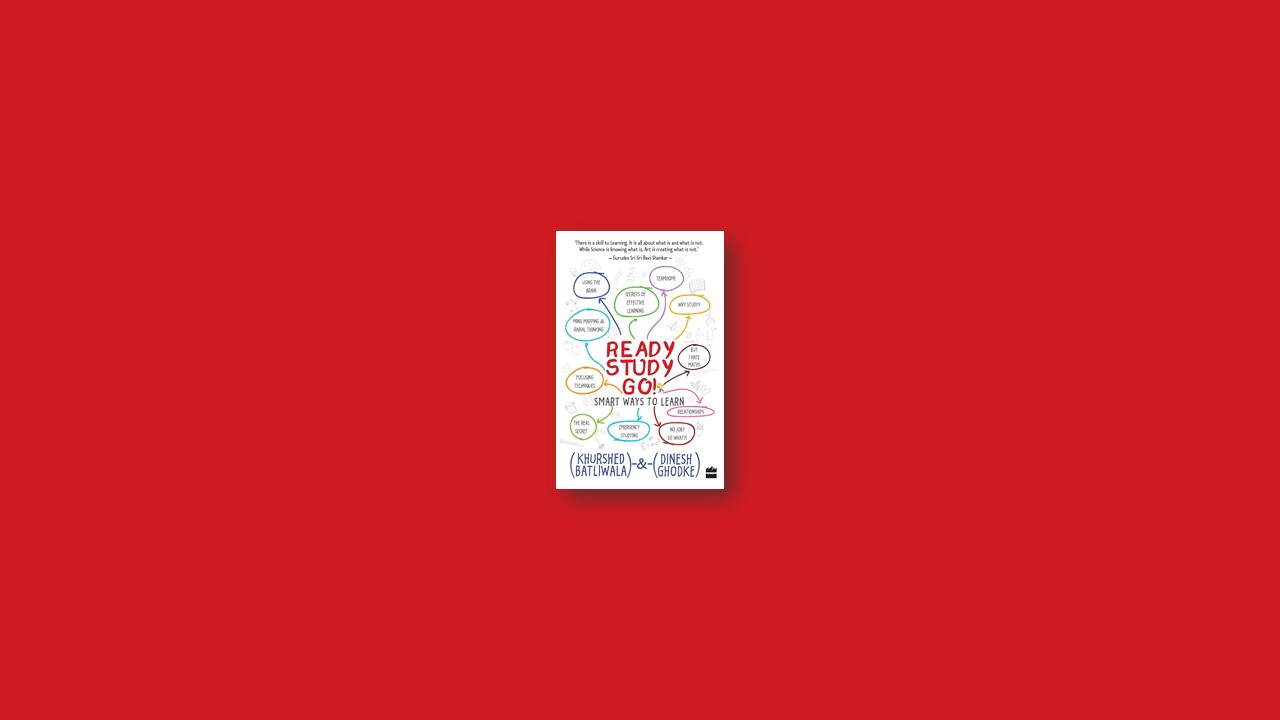The Seven Levels
We exist on seven levels. These are the Body, Breath, Mind, Memory, Intellect, Ego and Self.
We usually club the mind, memory and intellect into one unit and call it the ‘mind’. For many people, ‘studying’ seems to be a function of just this ‘mind’ (the mind-memory-intellect combo). They are quite wrong. Effective studying happens only when all seven levels of our existence are being nourished properly. Just as a good building is not simply the roof, floors and walls – but is a fantastic combination of those and many other elements such as the slope of the land, the climate, and the materials being used – truly effective studying happens only when all seven levels are taken care of.
Body
The body is the gross aspect of a living being. If you don’t have a body, chances are you will not need textbooks or any other tip or tool described in this book to study. The body needs to be well taken care of. Proper exercise, yoga and a good diet will contribute big time towards great grades. An unhealthy body can greatly hamper your ability to study and perform well.
Breath
We all breathe. The breath is the only physiological function of the body over which we have some level of control. We can breathe faster or slower. We can hold the breath for a bit. Every emotion that we experience triggers a breathing pattern and conversely, a particular breathing pattern will usually trigger an emotion. Positive emotions are typically associated with long deep breaths and negative emotions trigger short, shallow, sharp breaths. Some sort of control over the breathing helps maintain a sense of calmness in adverse situations, allowing us to take good decisions. This is the essence of the science of Pranayama.
Mind & Memory
The mind is what we use to experience the universe around us, through the five senses. At any moment, there is a tremendous amount of stimulus being received by our senses. If we were aware of every last bit of it – if everything around us could impact us – then we would go crazy in a few seconds. The mind filters out stuff that is irrelevant and extraneous, making us experience only the things that are important.
Have you ever worn a watch after a long time of not wearing anything on your wrist? Did you notice how when you first wore it, you kept feeling it there, but in a few days you barely notice it? That’s the mind kicking in. To begin with it feels the watch as alien and something new, so it gives you the experience of wearing it. Later, once it has ‘accepted’ the watch as something that is constantly there, it makes you become almost unaware of it.
The mind is incredibly powerful at manifesting things you want. But it is also very innocent and cannot differentiate between a desire and a fear or an aversion. Have you noticed how when you don’t like someone and you don’t want to see them, they keep ‘coincidentally’ meeting you or getting in touch with you? This is your mind at work.
Intellect
The intellect is your decision-making faculty. The intellect judges and discriminates. The memory stores past experiences. The intellect looks into the memory and then judges whether a particular thing should or shouldn’t be done.
For example: you are near an ice cream shop. The intellect goes into the memory and sees that the last time you ate ice cream it felt wonderful. So it says, ‘Go on, eat it, eat it!’
Say you are near fire on a cold day. The intellect goes in the memory and sees that some time ago you had been burned by a fire, which caused you pain; at the same time, it also remembers how nice and cosy you felt near a fire when it was cold. So it says to you, ‘It’s OK to be close to fire for the heat, but don’t go too close; be careful.’
The intellect also doubts. When there is stress, the intellect goes into ‘doubt mode’ and all good judgements go for a toss. Doubt can severely hamper your studying ability and your chances of success in the world.
Ego
The ego is that sense of ‘I’ that you have. A healthy ego is inclusive and loves to succeed along with others. It also learns from failure and mistakes and makes you genuinely concerned when others fail. It makes you feel big and generous. A healthy ego likes to give credit to others when credit is due and takes responsibility when things are going wrong. It puts a glow on your face and makes you smile more.
A sick ego is exclusive, born out of fear and feels jealous of others’ successes. Instead of learning from mistakes, it blames people and situations. It feels glee when others fail. A sick ego makes you feel small and stingy. A sick ego will refuse to take responsibility for failure and will almost never give any credit to others who contributed to your success. A sick ego makes you feel old and tired, and you hardly smile.
Self
It is of critical importance for the mind to be calm, for the intellect to be doubt-free, for the memory to be clear and for the ego to be healthy. Then, one can perceive reality clearly and take rational, intelligent decisions. Only through awareness of yourself and the various building blocks that make ‘you’ can you truly succeed. The easiest way to bring about this awareness is by learning and regularly practising meditation.
The Self cannot be defined. It’s your very core. A glimpse of who you truly are can happen when you meditate. This brings great energy and stamina and you can achieve stuff you never ever dreamed possible.
When the seven levels are healthy and synchronized, then success comes almost effortlessly. Good luck follows you.


